Latest News
07 October 2021
New method helps identifying murder suspects more quickly
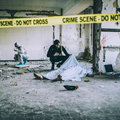
Delft PhD student Daan Sutmuller has developed a new, effective method in collaboration with the police that supports homicide investigation teams in collecting and prioritising interesting persons in the investigation more quickly. The promising method should make the investigation work more manageable and ensure that more homicide cases are solved. Sutmuller obtains his doctorate this Thursday with his dissertation 'Murder investigation in the digital age'.
01 October 2021
Diversity & Inclusion Week 4-8 oktober 2021

24 September 2021
TU Delft set to future-proof electricity grid
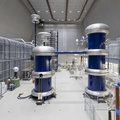
In order to ensure that the electricity grid is prepared for the future, TU Delft, the Dutch government and partners including grid operator TenneT have joined forces to build a brand-new laboratory: the Electrical Sustainable Power Lab, otherwise known as the ESP Lab. The laboratory – described as a ‘veritable temple of sustainability’ – will be officially opened on the afternoon of Friday, 1 October 2021.
22 September 2021
Understanding human-robot interaction critical in design of rehabilitation systems
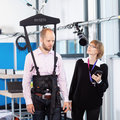
Robotic body-weight support (BWS) devices can play a key role in helping people with neurological disorders to improve their walking. The team that developed the advanced body-weight support device RYSEN in 2018 has since gained more fundamental insight in BWS but also concludes that improvement in this field is necessary.
22 September 2021
Now everyone can build battery-free electronic devices
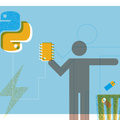
Last year, computer engineers from Delft University of Technology (TU Delft) and Northwestern University introduced the world’s first battery-free Game Boy, which harvests both solar energy and the user’s kinetic energy from button mashing to power an unlimited lifetime of game play. The same team now introduces a new platform that enables makers, hobbyists and novice programmers to build their own battery-free electronic devices that run with intermittent, harvested energy.
21 September 2021
TU Delft opens Climate Action Hub on Campus The Hague

16 September 2021
Position paper: AI as an accelerator of the energy transition
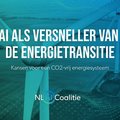
Making a significant contribution to creating opportunities for a CO2-free energy system, this is what 150 representatives from the business community, knowledge institutions and government are working on within the Dutch AI Coalition. The Energy and Sustainability working group collaborated on the position paper 'AI as an accelerator of the energy transition', which sets out the opportunities for a CO2-free energy system. Researchers from TU Delft have made an active contribution to this agenda.
16 September 2021
Digital water
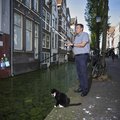
Overstroomde riolen, plastic afval, lekkages van waterleidingen… Ook onder de grond kent Nederland grote wateruitdagingen. Met menselijke kracht alleen kunnen we dat niet oplossen, zegt professor Zoran Kapelan. Daarom schakelt hij de hulp in van kunstmatige intelligentie en machine learning.
16 September 2021
Delft researchers unmask millions of unsafe face masks
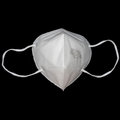
At the request of medical professionals, researchers at TU Delft developed a test method to check whether imported face masks met the safety requirements. And that was necessary, as it turns out, because in total only one-third of the 140 million face masks tested in 19 hospitals passed the safety test.
10 September 2021
TU Delft, NFI and police develop smart technique for forensic photography
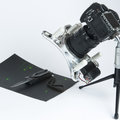
Every trace or other piece of evidence at a crime scene has to be thoroughly examined. Traces that cannot be taken away or stored, such as blood spatters, is visualised with a ruler to indicate its size. TU Delft and the Netherlands Forensic Institute (NFI) have developed a new method for the police that will soon make the ruler obsolete and make it easier to measure all kinds of forensic evidence.
